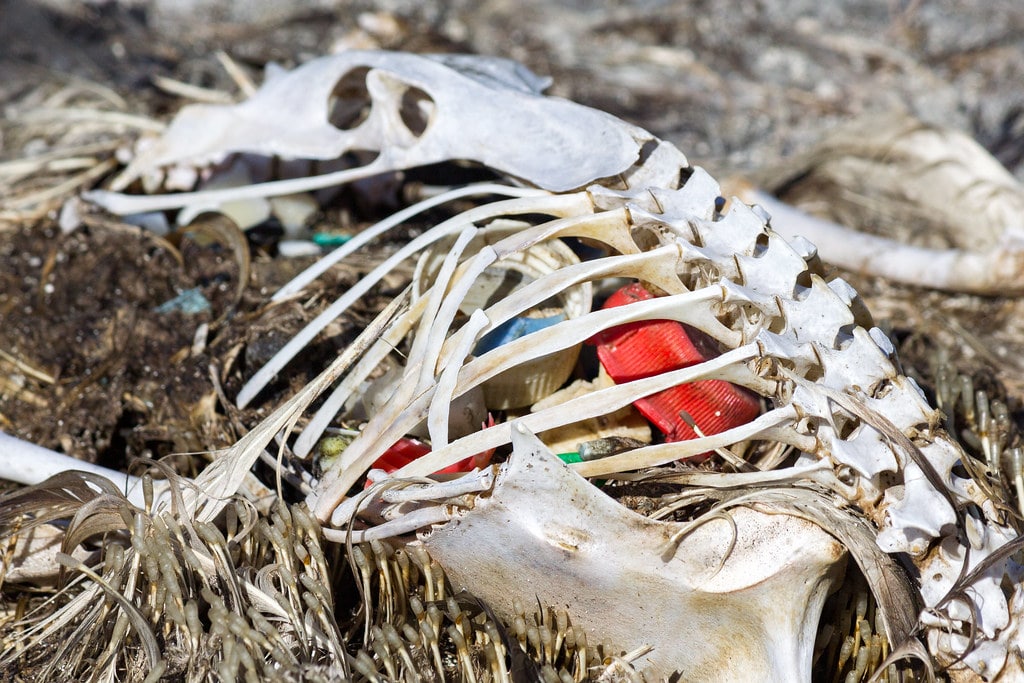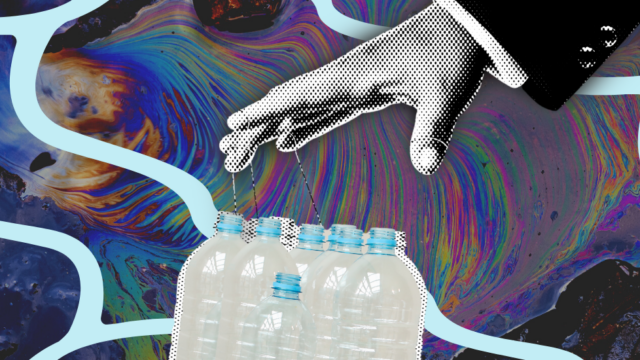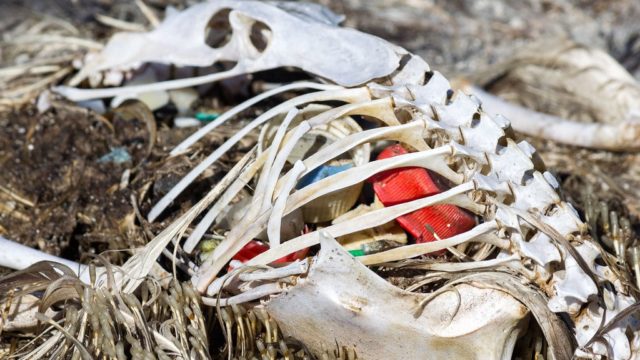Dismissal strikes a blow to regulation of plastics pollution in Canada
OTTAWA/TRADITIONAL, UNCEDED TERRITORY OF THE ALGONQUIN ANISHNAABEG PEOPLE – The Federal Court has ruled the Government of Canada acted outside its authority when it designated plastic manufactured items as ‘toxic’ under Schedule 1 of the Canadian Environmental Protection Act (CEPA). As leaders from around the world gather in Kenya for negotiations of the United Nations Global Plastics Treaty, the decision is out of step with the globally recognized need for both international and domestic efforts to tackle the plastics pollution crisis.
Ecojustice acted on behalf of Oceana Canada and Environmental Defence as interveners in the case. The groups are disappointed with the outcome, saying this decision limits the government’s ability to respond to the urgent crisis of plastics pollution. They encourage the government to appeal the decision.
The case was brought by an industry coalition that includes Canada’s three biggest plastic producers, NOVA, Dow, and Imperial Oil. The group dubbed themselves, the Responsible Plastic Use Coalition (RPUC). The same group launched a second lawsuit last year, challenging Ottawa’s ban on several common single-use plastic items. The ban was put in place following the CEPA listing.
Lindsay Beck, lawyer, Ecojustice said:
“By listing plastics as a toxic substance under CEPA, the government took a vital first step toward curbing plastic pollution and ensuring its harms are mitigated. This decision sets Canada back in its efforts to tackle the plastics crisis.
“Ecojustice maintains that it is well within the authority of the federal government to regulate plastic pollution. Regulation is also imperative in the fight against this worsening environmental crisis. The federal government should strongly consider an appeal to reverse the concerning precedent set by the court’s decision.”
Ashley Wallis, Associate Director, Environmental Defence said:
“We’re dismayed to see that the court sided with Big Plastic despite the industry’s blatant disregard for plastic’s catastrophic impacts on the environment. We urge Canada to stand firm, appeal this court decision and move forward with its planned regulatory and policy agenda.
“The evidence is clear: plastic products are toxic to the environment, and there is increasing concern over their harmful impact on human health. We need federal regulation to help stem plastic pollution in Canada and around the world.”
Kim Elmslie, Campaign Director, Oceana Canada said:
“With today’s ruling, Canada faces a setback in its battle against plastic pollution. Oceana Canada and our allies, supported by the vast majority of Canadians demanding robust action, will continue to fight plastic pollution and urge for an appeal of this decision.
“The detrimental impact of single-use plastic on our environment, oceans, and life itself is undeniable. Canada generates more than 4.8 million tonnes of plastic waste annually, and a staggering 92% is relegated to landfills, incineration, or litter. Given today’s outcome, we call on industry leaders and governments across Canada to champion this cause to end plastic pollution at its source. Our planet depends on this leadership.”
Plastic pollution threatens wildlife and the environment
The world is facing a plastic pollutions crisis. More than 8 million tonnes of plastic end up in our oceans each year, representing 80 per cent of all pollution in the oceans. Research shows that seabirds are suffering from a plastic-induced illness named ‘plasticosis’, which inflames the digestive tract and threatens animal health. The plastics lifecycle, from production through to decomposition, also emits greenhouse gases and contributes significantly to global warming and both air and water pollution.
Plastic waste is one of the most persistent pollutants on Earth. Plastic pollution never disappears, instead, large plastic debris breaks down into microplastics (fragments of any type of plastic less than five millimetres in length) that accumulates in the environment.
Evidence of the human health impacts of plastic pollution were not before the court in this case, but groups are concerned about overwhelming evidence of potential harms. The health of communities is negatively impacted at every stage of the plastics lifecycle, from:
- the extraction and transportation of fossil fuels used to make plastics; to
- manufacturing by petrochemical facilities in places like Sarnia (next to the Aamjiwnaang First Nations); and through to
- disposal in landfills or emissions from burning plastic waste in incinerators.
Scientific studies have detected microplastics in the human blood of 80 per cent of people tested. Microplastic particles have been found in human lungs, intestines, and even the placentas of fetuses and in newborns.
Industry holding back progress
Industry opposition to plastics regulation is out of step with science and public opinion and environmental groups warn that Big Plastic is hampering much needed progress. Last year, the United Nations set out to write a legally binding agreement to deal with the plastics crisis. The third round of negotiations are currently underway in Nairobi where fossil fuel and chemical industries registered 143 lobbyists to attend the sessions, which represents more than 70 countries combined.
The plastics industry has often deflected the blame for plastic pollution to consumers or “litter bugs” rather than investing in reuse systems or alternative plastic-free choices. In fact, they have aggressively lobbied against any restrictions as they benefit economically from maintaining the status quo. A Reuters investigation found evidence that industry is lobbying countries to reject bans on single-use plastics and a cap on production at the UN treaty negotiations.
Environmental groups say the plastics industry should put their well-resourced efforts into addressing the serious harms of their products rather than continuing to try and prevent needed regulation.



